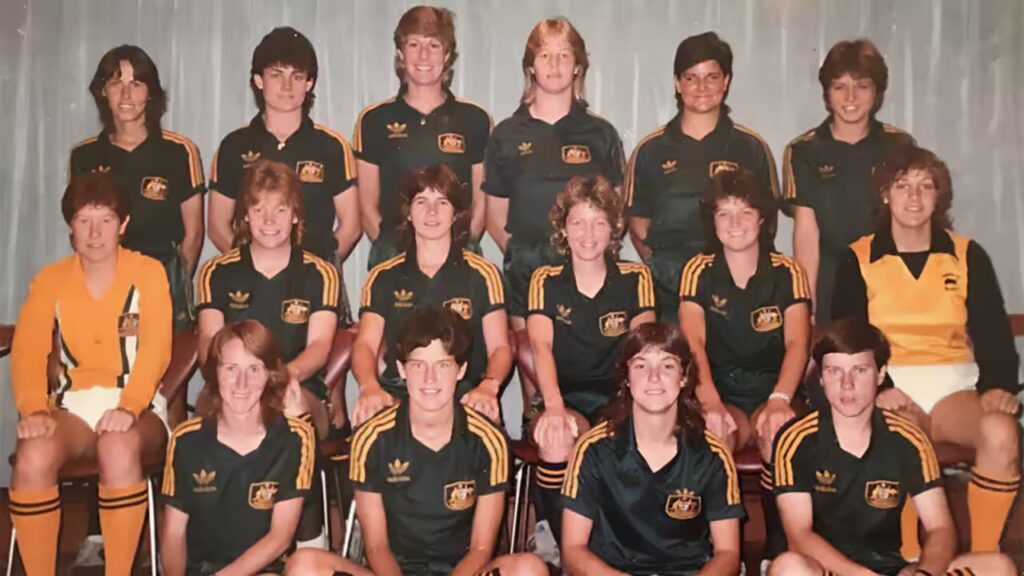Renaye Iserief is a celebrated figure in the early history of Australian women’s football, but her story is also deeply tied to the broader Dutch-Australian migration narrative. She is one of two Dutch-Australian women — alongside Rose van Bruinessen — who proudly wore the green and gold as Matildas during the 1980s.
Renaye’s father, Gerry Iserief, was of Dutch-Javanese descent and grew up in the Netherlands East Indies (now Indonesia). Like many Dutch colonial families, his life was dramatically altered by the Second World War. During the Japanese occupation, Gerry spent three years in a Japanese prison camp, surviving one of the darkest chapters of Dutch colonial history. After the war, Gerry eventually migrated to Australia, where he married an Australian woman and raised a family on the Central Coast of New South Wales.
Renaye grew up in Budgewoi, where she often played football in the backyard with her two older brothers. In Clogball she described herself as “a bit of a tomboy,” and her early exposure to informal backyard games helped shape her instincts as a natural striker. At age 14, she began training at the Budgewoi Soccer Club. The coaches immediately recognised her talent and invited her to join the senior women’s team.
She quickly rose through the regional ranks, representing Northern NSW, where she was awarded Player of the Year — a testament to her striking ability and football intelligence. Her playing style was characterised by fearlessness, positioning, and an instinctive eye for goal.
Her outstanding form earned her a place in the Australian national team, the Matildas, in the early 1980s. She earned 16 caps and scored 9 goals, representing Australia in regional championships, including the 1986 OFC Women’s Championship.

Renaye’s contributions to the sport didn’t end with her retirement from playing. In 1999, she served as tour manager for the Young Matildas during their international tour of the Netherlands and the United States — a full-circle moment connecting her heritage and football journey.
Renaye Iserief’s story is one of quiet determination, intergenerational resilience, and the influence of Dutch-Indonesian migration on Australian society. Her father’s wartime survival, her mother’s local support, and her own talent came together to produce a legacy that lives on in the early foundations of women’s football in Australia.
See also: SBS interview

